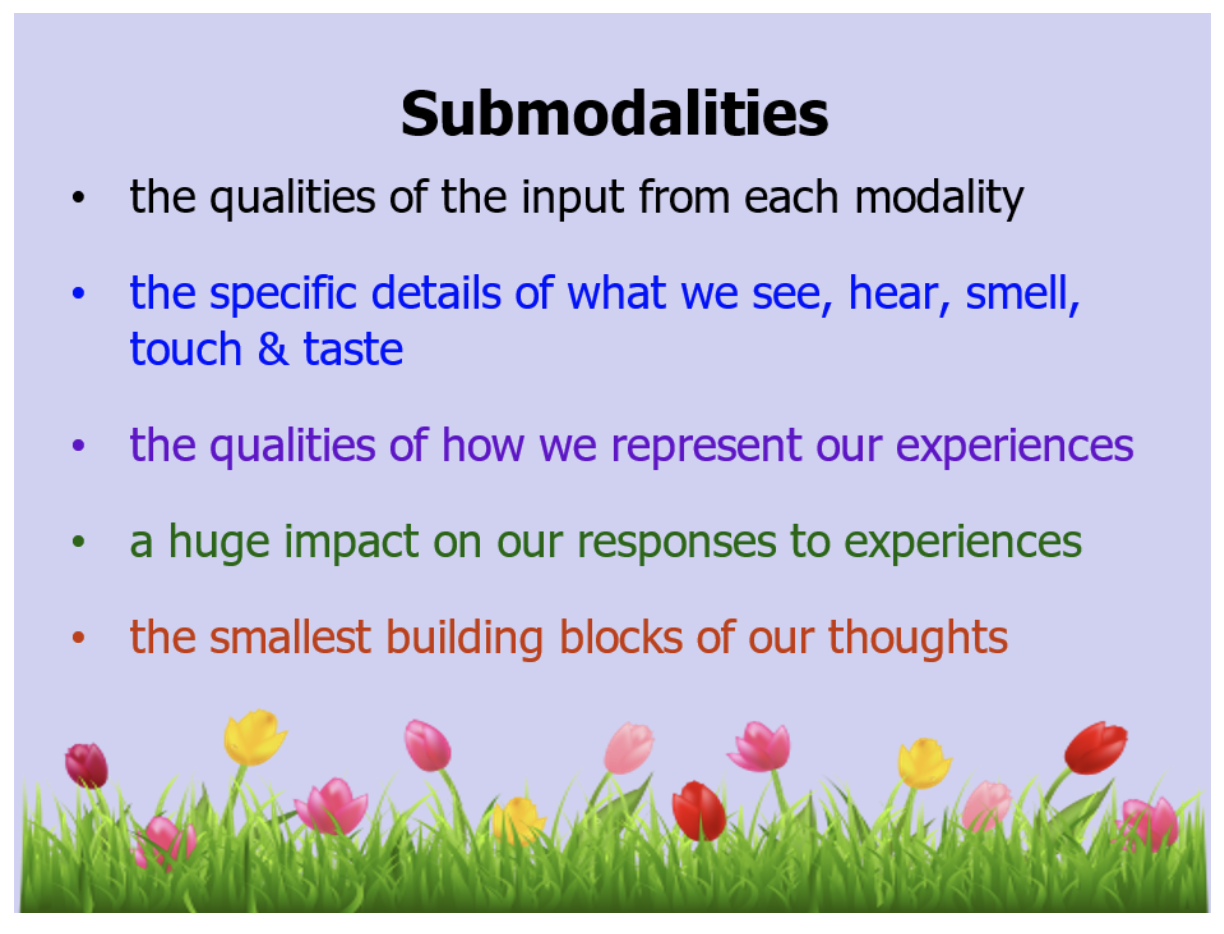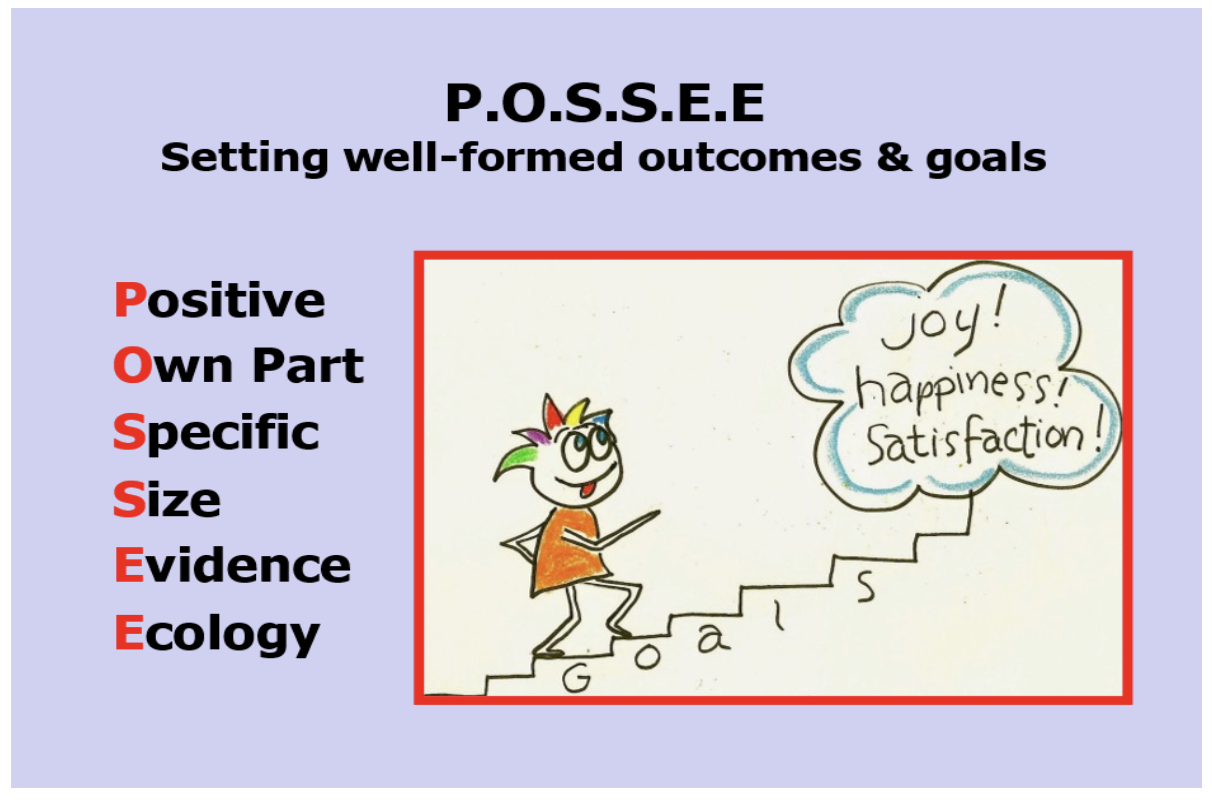1
4. Building the Picture, Setting the Outcomes
4. Building the Picture, Setting the Outcomes
Apie
We are sure you welcomed a shorter training day of the international training course Mental Health Promotion in the Youth Field today and hope you enjoyed your time exploring The Netherlands. Here’s a short recap of what we did in the training room today:
Submodalities: These have been described as the “building blocks of our experiences”. Having looked at how we experience our lives through our 5 senses, submodalities are the specific qualities of the images we see, the sounds we here and the feelings we have.

P.O.S.S.E.E. We switched our attention to focus on setting well-formed outcomes to our work in mental health promotion. Whatever our role with other people, youth worker, coach, therapist or mentor, our first question needs to be “What do you want?”. If the answer to this question is not clear, we can waste time and rapport. The P.O.S.S.E.E. Model gives us a framework to get really clear outcomes.

Gauk veiklos ženkliuką
Building the Picture, Setting the Outcomes Gauk šį ženkliuką
This badge is a reflection tool for the fourth day of our training Mental Health Promotion in the Youth Field. Today we had a shorter training day, with time off in the afternoon to explore the local area. Even so, we had chance to learn a couple of very useful and important exercises for our youth work:
- Submodalities are the building blocks of experience, so we had a chance to use them to do some building and rebuilding of our own.
- A major focus of NLP is that we need to have a very clear and well-formed outcome for our work. This is as true in youth work as it is in our personal life. The P.O.S.S.E.E. Model helps us to do this in a systematic way.
The holder of the badge will have worked either on their own or in a small group to reflect on the questions:
- how the day has gone
- what has been learned
- how to use this in your youth work
- how else to use it.
The questions are designed to optimise generative learning: they are not just about what the participant has learnt but also how they can use the learning in their work and personal life.
- L1.3: Reflecting on other people’s feedback as well as on successful and unsuccessful experiences to continue developing one’s potential,
- L3.2: Planning and implementing learning goals, strategies, resources and processes,
- P1.1: Awareness and expression of personal emotions, thoughts, values, and behaviour,
- P1.2: Understanding and regulating personal emotions, thoughts, and behaviour, including stress responses, and
- P2.3: Managing transitions in personal life, social participation, work and learning pathways, while making conscious choices and setting goals.
Užduotys
Užduotis nr.1
Įrodymus patikrino: vienas renginio organizatorius
- How has today gone for you?
- What have you learnt?
- How can you use this in your youth work?
- How else can you use it?
Įgūdžiai
ESCO
#skatinti psichikos sveikatą
LIFECOMP
#Growth mindset
LIFECOMP
#Managing learning
LIFECOMP
#Self-regulation
LIFECOMP
#Flexibility
Organizatoriai
Cities of Learning Network
Badge issuer recognized with
Panaudota grojaraščiuose
MENTAL HEALTH PROMOTION
Cities of Learning NetworkSukurta Global platform for Cities of Learning
Awero palaiko šią platformą ir plėtoja ją kartu su pagrindinėmis švietimo organizacijomis. Europos Sąjungos programa Erasmus+ dalinai finansavo pirmosios platformos versijos sukūrimą. Susisiekite su mumis support@Awero.org.
Platforma
Pakeisti į kitą kalbą:

